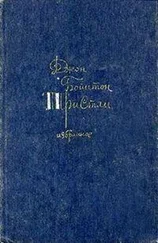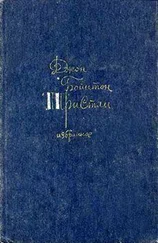The next moment Penderel could have groaned aloud. Suddenly that old feeling had returned. It came, as usual, without warning. A grey tide, engulfing all colour and shape of things that had been or were to be, rushed across his mind, sweeping the life out of everything and leaving him all hollow inside. Once again he sat benumbed in a shadow show. Yet as ever – and this was the cruel stroke – there was something left, left to see that all the lights were being quenched, left to cry out with a tiny crazed voice in the grey wastes. This was what mattered, this was the worst, and black nights and storms and floods and crumbling hills were not to be compared with this treachery from within. It wasn't panic nor despair, he told himself, that made so many fellows commit suicide; it was this recurring mood, draining the colour out of life and stuffing one's mouth with ashes. One crashing bullet and there wasn't even anything left to remember what had come and gone, to cry in the mind's dark hollow; life could then cheat as it liked, for it did not matter; you had won the last poor trick.
Having conjured the malady into a phrase or two, Penderel felt better, came out of his reverie and looked about for entertainment. He found it in the person of Mr. Femm, who was bearing down upon him, carrying a small tray. There was a bottle on the tray, and Penderel felt like breaking into applause. Flourish of trumpets: enter Bottle .
"Now do you think, Mr.- er- " Mr. Femm put down the tray and hesitated.
"Penderel," he told him promptly – told the bottle too.
"Mr. Penderel, of course," said Mr. Femm. "Do you think you could join me in a drink?"
"Mr. Femm, I feel that I could, with pleasure, join you in a drink." They were like two old club cronies.
Mr. Femm stood over the bottle. "It is not whisky, which all you young men drink now, I believe. This is gin, which I prefer to all the other spirits, except, of course, the very old brandies. With some lemon, a little sugar perhaps, some hot water if you care for it, gin is excellent, and, remember, the purest of the spirits."
"I do remember," said Penderel, heartily. "Gin for me, with pleasure. I used to drink it with the sea-dogs. The Navy, at least the commissioned part of it, has a passion for gin. After it gave up rum, it went straight to gin. The brave fellows sit round all night, dropping remarks about turbines and torpedoes, the coast of Manchuria, and beautiful blue-eyed girls, and drinking gin with admirable steadiness and ease." He watched the other pour out the liquor, accepted lemon and sugar, refused water, and then, glass in hand, remarked: "We must have a toast."
Mr. Femm looked thoughtful, even philosophic, with the faint ghost of conviviality hovering about him. "Mr. Penderel, I give you a toast that you will not appreciate, being young. I give you – Illusion!" And he lifted his glass.
"I'm all for it. Illusion!" He gasped a little for it was unusually strong stuff. But that was better. A few more such toasts and illusion would be something more than a wistful sentiment. "But don't imagine that I'm too young to appreciate the value of illusion. I'm just the right age. I was born too late or too early to escape the rotten truth, and I've been stubbing my toes against flinty facts ever since I left school."
Mr. Femm smiled grimly. He was about to say that that itself was one of youth's illusions. Penderel could see it coming: he had heard it before. But then Mr. Femm surprised him by not speaking at all; he merely stared on after the smile had vanished and took a sip from his glass. The next moment his eyes seemed to be looking out into horrible space, and his face was twitching. He appeared to be listening. "A dreadful night," he muttered at last. "It seems to be getting worse."
"It's a brute, certainly," Penderel replied, "but apparently there's no danger here. Miss Femm and your man seem to be positive that this house is safe enough."
"But even if it is, we may be completely cut off, shut in here." The man seemed to be talking to himself rather than to Penderel.
"We might, of course, and that would be a nuisance for you." Penderel tried to look polite and anxious and sorry, though he did not care a fig if he had to stay there. He was as well off there as anywhere else. He had nowhere to go, nowhere he even wanted to go, now. Good God! – what a thing to admit to oneself at twenty-nine! "What I mean is," he went on, "that it's a nuisance your having us here like this, besieged with you."
Mr. Femm looked at him with real terror in his face. There was no mistaking it now. He lashed himself into a kind of anger as frightened men frequently do. "But to go running out there," and he pointed shakily at the door, still open to the night, "in the dark, with the floods there, the rocks tumbling down, everything cold and black and pitiless. And nowhere else to go, no escape!" And he clashed together his bony hands.
Penderel stared at him. "A bad business, certainly, if one had to go. But one hasn"t, you know. Even if we have to go, you won't have to. You can stay comfortably here." And as he said this, he looked Mr. Femm in the eyes.
Mr. Femm met the look for a second and then quickly glanced round the room. He was obviously taking hold of himself. Finally he leaned forward. "As you can probably see," he whispered, "I am nervous at the thought of our being shut in here. The fact is that Morgan, who is an old servant of my brother"s, is an uncivilised brute. Occasionally he drinks heavily – a night like this would set him going – and once he is drunk he is very dangerous. He is as strong as an ox and could batter a door in with ease. You can imagine that I dread being compelled to remain here, with no means of escape, with such a savage."
Penderel nodded reassuringly. "We must try to keep the drink away from him. As a drunk and disorderly, he'd be no joke." But he had been observing Mr. Femm very narrowly throughout his speech. All this about Morgan might be true, it probably was true, for obviously the man was almost a savage, but nevertheless Penderel was convinced that his companion was lying. It wasn't the thought of Morgan that had terrified him. There was something else; some more fearful image had haunted him when he had so suddenly and strangely cried out against remaining in the house. Perhaps there was something here even worse than a drunk and half-crazed Morgan battering doors in. Perhaps too it was only some maggot of the brain. These Femms, perched remotely on their hill, seemed to have gone queer, all maggot-brained. For a moment he stared at the one before him as if he were staring at a creature from an unknown continent.
The door behind them closed. Morgan was bolting it, and Waverton, doffing his coat, was at their elbow. "I've put the car away," he told Penderel. "Just round the corner in a kind of open shed. It seems safe enough there." He glanced round. "Where's my wife?"
Penderel jerked a thumb to the far door on the right. "Gone to change, I think." Mr. Femm, still looking somewhat shaken, rose and indicated the bottle and glasses. "Have some gin, Waverton?" Penderel suggested. "It's jolly good."
Waverton smiled and shook his head. "No, thanks. I don't like the stuff. Are you drinking it, Penderel? Neat, too? It'll make you feel desperately melancholy."
"Gin is saddening," Penderel admitted, "but it's not so saddening as no gin." Mr. Femm began to fill the glasses again. His hand was still trembling, and he seemed as jumpy as the daft lights, though indeed these were so bad now that they made everything seem jumpy. Such lights were crazier than darkness itself; they were like a man doing a witch-doctor's dance in a top hat and frock coat. Penderel noticed that Waverton, now no longer a manipulator of brakes and gears but a human being, was looking about him curiously and stealing an odd glance or two at friend Femm. And well he might, Penderel told himself, and suddenly felt unreasonably sorry for Waverton. Somehow he felt that Waverton ought not to be there. Waverton wasn't like him, a man without a load, almost outlawed, naked, but a fellow who had given – what was it? – yes, hostages to fortune. He had, for example, a wife there, now changing her clothes. How odd women were, always either not quite human or too human! She had gone off to change, accompanied by a little fat deaf monster. There was something curiously pathetic about this going off and changing. In a minute she would come tripping back, all dressed up and smiling, just as if it were a party, perhaps somebody's birthday. Penderel had an odd impulse to shake Waverton by the hand, but he restrained it and stretched out his hand for the glass instead. He must, though, talk to Waverton about Mr. Femm.
Читать дальше










